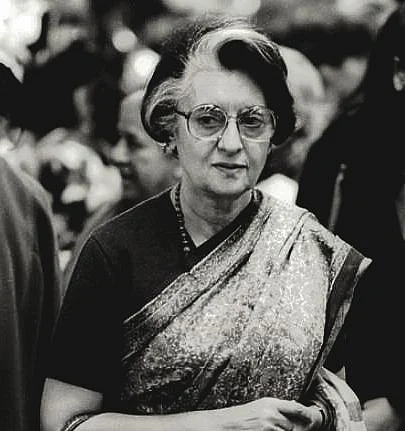Recalling Indira Gandhi’s decisive blow in 1969 to capitalists and princes
Bank nationalisation established Indira Gandhi as a leader in her own right. The decisions to nationalise banks and end privy purses marked a departure from the past and paved the way for modern times

July 19, 1969 changed India once for all. It was the day when 50 years ago around 8 pm in the evening the then Prime Minister Indira Gandhi made the historic announcement of her government’s decision to nationalise 14 top private banks.
I had then just passed class 10th. But coming from a politically Left inclined family, I distinctly remember that Indian Gandhi’s decision to nationalise banks had electrified the country, especially the youth.
Those were the heady days of Left politics. The Soviet Union was still around giving the Americans a run for their money. Leaders like Mao and Castro used to be icons of a large section of the youth. Vietnam war used to generate heated debates among students. Indira Gandhi’s tilt, in such a Left inclined world, towards the Left caught the peoples’ imagination.
Indira Gandhi never looked back since then till 1977 when she first lost an election in the aftermath of the Emergency. Two of Indira Gandhi’s decisions, bank nationalisation and abolition of privy purses of one-time princes, in fact, changed both her political career and also transformed India like never before.
These two decisions established her as a leader in her own right. She was no longer only Jawaharlal Nehru’s daughter. She had established herself as a daring leader who could take on both the mighty ‘’capitalists’’ and also feudal kings and princes.
Both capitalists and princes were sort of enemies in common perception at that point of time. Capitalists had the image of being exploiters who thrived on stealing labour’s hard-earned money. And, Kings and princes, called Rajas and Maharajas, were feudal liabilities from medieval times and whose reign of terror had continued in villages even after Independence.
India was a democracy much before Indira Gandhi nationalised banks and abolished privy purses. Yet benefits of democracy had not filtered down to the masses. Indira Gandhi with bank nationalisation opened the doors of the country’s capital locked up in banks for the benefit of the poor.
Similarly, her daring act to take on feudal Lords and princes sent the message down to the grass roots that even the common man was the master of his destiny.
Both these acts came in quick succession and led to a dramatic transformation of India. Banks reached villages and financed even the poor and the poor villager got the courage to stand-up on his own, defying his feudal lords and masters.
Indira Gandhi’s action basically struck a death blow to the ancient Indian society. Much water has flown down the Indian political river and people are now questioning her decision to push the Indian economy to the socialist path.
Critics may say anything against her decision to nationalise banks in these times of free-market economy and right-wing politics. But history will remember her for unlocking the doors of wealth for the poor through her daring act of bank nationalisation.
Follow us on: Facebook, Twitter, Google News, Instagram
Join our official telegram channel (@nationalherald) and stay updated with the latest headlines
